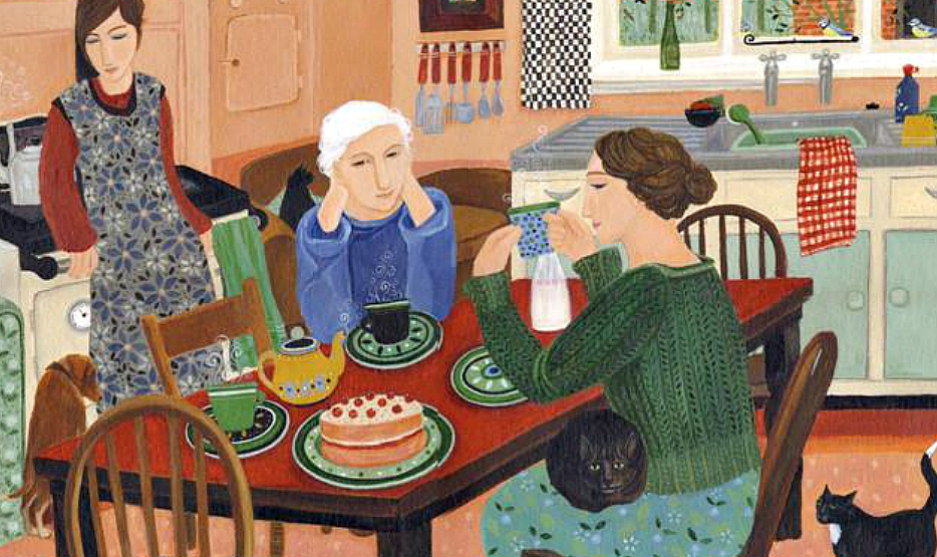“No doubt my poetry errs on the side of oddness. I hope in time to have a more balanced and Miltonic style. But as air, melody, is what strikes me most of all in music and design in painting, so design, pattern or what I am in the habit of calling ‘inscape’ is what I above all aim at in poetry. Now it is the virtue of design, pattern, or inscape to be distinctive and it is the vice of distinctiveness to become queer. This vice I cannot have escaped.”
~ Gerard Manley Hopkins (in a letter to Robert Bridges, February 15, 1879)
Like E.E. Cummings, Gerard Manley Hopkins is known for his innovation with poetic form. But with Hopkins there is quite a different inner music, played on taut strings of repression and anguish.
Hopkins started out wanting to be a painter, but soon decided that such a pursuit was “too passionate” for someone seeking an ecclesiastical life. He destroyed his early poems for the same reason. As a Jesuit priest, he didn’t paint, but sketched, composed music, wrote sermons and other religious pieces, and eventually was led right back to poetry.
This conflict between his artistic longings and his devotion to religion resulted in a life of abject misery. He decided never to publish his poems, since to do so would be a function of ego rather than humility. Though he never waivered in his faith, he also never felt worthy of it.
Why did such a promising, sensitive young man, who began writing poetry as a boy and who clearly possessed a keen interest in art, opt for a life of such agonizing denial and submission?
While studying at Oxford, Hopkins became greatly disturbed by the discovery of his homoerotic tendencies. This motivated him to seek an ascetic life, and he eventually converted to Catholicism. Did he seek refuge in religion?
Despite the austerity of his regulated existence, Hopkins’ poetry reveals a man unwilling to conform to prevailing standards. Traditional verse was far too tame, so he experimented with diction, meter, and rhythm. He used archaic words (or coined his own), preferring the older rhythms of Anglo-Saxon poetry. Influenced also by the aural patterns of Welsh literature, he skillfully incorporated alliteration, assonance, and onomatopoeia. His “sprung rhythm” enabled him to escape the constraints of the more predictable “running rhythm” utilized by his contemporaries.
“The Windhover” is my favorite Hopkins poem, and he considered it to be his best work. While an artist might have painted a landscape, Hopkins word-painted an inscape, the movement and music of which perfectly replicates a single moment when a bird rebuffs a big wind. Just as the Romantic poets before him looked to nature for spirituality, Hopkins saw the miracle of the divine in the falcon.
With every reading, I am amazed anew at the sheer beauty of the language. In the space of this magnificent poem, one senses a soul hovering between heaven and earth, riding the air under the rein of God, then finally breaking free.
THE WINDHOVER
by Gerard Manley Hopkins

To Christ Our Lord
I caught this morning morning’s minion, king-
dom of daylight’s dauphin, dapple-dawn-drawn Falcon, in his riding
Of the rolling level underneath him steady air, & striding
High there, how he rung upon the rein of a wimpling wing
In his ecstasy! then off, off forth on swing,
As a skate’s heel sweeps smooth on a bow-bend: the hurl & gliding
Rebuffed the big wind. My heart in hiding
Stirred for a bird, — the achieve of, the mastery of the thing!
Brute beauty & valour & act, oh, air, pride, plume, here
Buckle! AND the fire that breaks from thee then, a billion
Times told lovelier, more dangerous, o my chevalier!
No wonder of it: sheer plod makes plough down sillion
Shine, & blue-bleak embers, ah my dear,
Fall, gall themselves, & gash gold-vermillion.
(composed in 1877, first published in 1918)
This week’s Poetry Friday Roundup is at HipWriterMama.

This is one that I have to read multiple times to get anywhere near the fullness of meaning that GMH has packed into this poem. But I adore his “odd” sprung rhythms and his unconventional grammar–and his passion.
LikeLike
I’m so glad we studied this one in school–far from cheapening the experience, it gave me an idea about the meaning of the words and metaphors that was sadly lacking when I first read it…This one really pays re-reading.
LikeLike
That last was from me, Charlotte…
LikeLike
Mercy, I am all out of breath…
LikeLike
TadMack says:
Thanks for sharing a bit of his life’s story – I have always thought his poetry very joyous, if a bit strange, but in this light, it grieves me to think that he created such passionate wordplay in denial and restraint, thought himself unworthy of his own art, and that God may have found the whole thing unseemly and unsuitable. Hopkins’ poetry does indeed reveal a man unwilling to conform to prevailing standards, and I wished he had been born just a little later… I imagine he and Walt Whitman might have brought out the best in each other.
LikeLike
His stuff is definitely better read aloud, but you need to take a deep breath!
LikeLike
I’ve only really begun to understand more of this poem since learning about his life. Sure, I knew he was a religious man, but never realized how unhappy he was. They say now that he was probably manic-depressive.
LikeLike
Do you remember John Boy reciting this in the “Waltons?”
LikeLike
Re: TadMack says:
He’s viewed as paving the way for free verse poets like Whitman. Definitely ahead of his time. Considering how repressed the Victorians were, Hopkins was indeed very daring to assert his own style.
LikeLike
I am nearly certain that he tried to “correct” his homosexual tendencies by seeking an ascetic life (just as many men with pedophiliac tendencies have entered the priesthood in hopes of diminishing them, some of them with really horrific headline-catching outcomes).
LikeLike
I love and need poems like this, that FORCE slow and careful reading. It’s so dense, it seems almost to be pushing against language rather than slipping meaning into it.
LikeLike
I think you’re right. He never really got over his self-loathing, and it’s amazing to me that such beautiful, powerful poetry came from such a dark soul.
LikeLike
You’re absolutely right about “dense.” I’ve been reading this poem off and on for over 30 years, and I still don’t understand everything.
LikeLike
I agree with writer2b, but what also struck me about this poem was the meter. It’s so strong an element and relates so well to the poem’s tone and subject.
LikeLike
Absolutely right. He breaks out of established sing-song, to replicate the thing itself, rather than merely describe it from a distance.
LikeLike
I do love this one, but Pied Beauty is my all-time favorite GM Hopkins.
Thanks!
Mary Lee
A Year of Reading
LikeLike
Wow.
And thanks for the background on Hopkins. I didn’t know much of that.
Favorite lines:
Brute beauty & valour & act, oh, air, pride, plume, here
Buckle! AND the fire that breaks from thee then, a billion
Times told lovelier, more dangerous, o my chevalier!
LikeLike
A very different person lived inside of Hopkins. Without his poetry, we might never have suspected that a man living a cloistered, drab, submissive existence could be capable of lines like these. If his friend, Robert Bridges, hadn’t published Hopkins’ poetry posthumously, the world would have been at a loss!
LikeLike